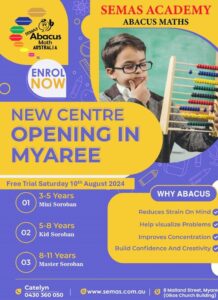Abacus is an ancient device that has intrigued many educationists and scientists. The reason behind it is its legacy that spans back almost 3000 years and the simplicity it presented to calculate the complex numerical needs of that era. The extraordinary speed and accuracy that an Abacus user shows became a subject of research for the scientists of the 20th century.
Dr. Toshio Hayashi, Professor, Osaka Prefecture University, Director, Research Institute for Advanced Science and Technology, Suggests that if children grow to enjoy learning the abacus and move the beads on the abacus with fun, they will receive an advantage from this experience.

Associate professor of the University of Chicago, Dr. James Stigler, wrote his thesis about abacus. He took 50 children from a non-abacus institute with an average IQ against the other 50 children from an abacus institute in his study. He took the memory tests of both groups on the visual memory scale. The results showed that Abacus learners had 200% better memory than non-abacus learners.
We have customized our abacus course to promote complete brain development. It creates an environment of playing a game without making the child realize that they are actually solving complex abacus maths problems.


